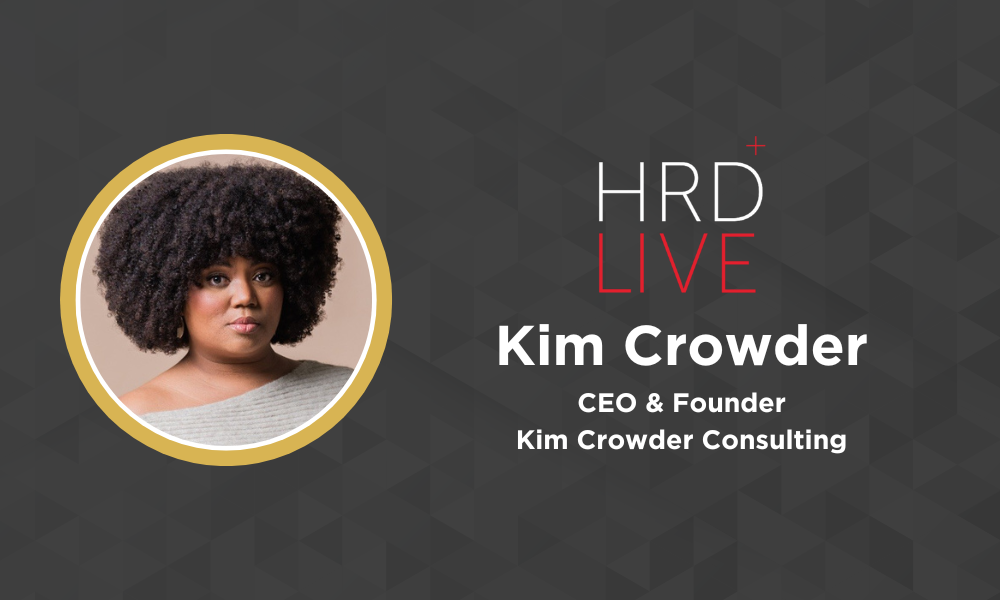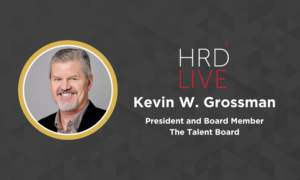Kim Crowder: Developing cultural fluency to establish workplace equity
- 4 Min Read
Kim Crowder emphasizes the role of anti-racism in establishing an equitable future of work, shares the need for cultural fluency, and explains why we must call toxic workplaces what they are: Abusive.
- Author: HRD Connect
- Date published: May 17, 2023
- Categories

Podcast: Play in new window | Download
Subscribe: RSS
Organizations can no longer ignore anti-racism imperatives. Firstly, and most importantly, all people in the workplace deserve to be treated with dignity and respect. Although this is far from a ground-breaking concept, business leaders and employees from historically ignored or minoritized backgrounds still require support as they navigate their roles.
Moreover, there is a business case for establishing an intentional anti-racism agenda. Tackling racism and establishing equity has the power to lower attrition rates and drive innovation. With shifting expectations, particularly among Gen Z and millennial demographics, a failure to do so compromises an organization’s ability to attract talent.
Kim Crowder is the latest guest on the HRD Live Podcast. In this episode, we dive deeper into the need to establish equity, how HR and business leaders can develop cultural fluency, and why anti-racism is a vital part of your people strategy.
Equity through anti-racism is the future of work
Crowder is a firm believer in equity as the future of work. She offers the example of Gen Z, who expect equity at every stage of the employee lifecycle, including the job application process.
“We know that their expectations are higher than past generations. Particularly around equity in the workplace… …we are seeing that Gen Z’s are not applying to jobs that do not have salary requirements.”
In short, the employment market is shifting. Crowder emphasizes that for organizations to stay relevant and attract the right talent, they must become intentional about equity through means such as intentional anti-racism. “People feel extremely empowered to be vocal about their workplaces,” she observes. Whether it be a union forming at an Amazon Warehouse on Staten Island, or a wave of strikes across the UK, people are documenting their retaliation to issues in the workplace more emphatically than ever before.
“As leadership and organizations are thinking about their workplace culture – not just culture at that surface level, but really looking at their processes and systems – people are pushing back. People understand what real equity looks like.”
Establishing anti-racism by developing cultural fluency
To establish workplace equity and develop a comprehensive anti-racism policy, HR leaders must develop cultural fluency both themselves and among their peers. “It’s the ability to see, understand, and value someone else’s cultural experiences and cultural perspectives,” explains Crowder. “We automatically ask folks to come into the workplace and change to fit the workplace.”
To shift this approach, HR leaders must work on their cultural humility. In practice, this means accepting you don’t know everything and that the way you – or your organization – do things is not the only right way to do it. “If we can find humility, it guides us into cultural competency,” argues Crowder.
An important step is coupling internal reflection with an external assessment. An objective and third-party view give a more detailed and accurate picture of where your organization is failing with its anti-racism strategy. This should guide further steps at the organization, leadership, divisional, and organizational level.
It will likely involve learning and development, both to highlight historical context about racial inequality, alongside practical applications of cultural fluency in the workplace. It may also shed light on policies that are systemically disadvantaging employees based on race. “Maybe your promotions practices, or the ways people get assigned projects,” offers Crowder. Customized coaching and training alongside policy change not only humanize the workforce but influence outcomes through process-level transformation.
Timestamps
00:10 – Introduction
00:58 – Why is it so important for organizations to be absolutely intentional about anti-Racism?
02:15 – How should business leaders continue to embrace equity as the future of work?
05:57 – Why is it important to describe workplaces that fail as ‘abusive’ rather than ‘toxic’?
08:21 – What is cultural competency and why is it an important part of anti-Racism?
11:05 – What training and development shoulder leaders take to ensure they improve cultural fluency?
14:42 – How can organizations make structural changes to ensure this development (and anti-Racism) is an ongoing exercise?
15:19 – What are the most common pitfalls that lead to anti-Racism initiatives failing, and how can they be combatted?
17:29 – What does the future hold for organizations that fail to develop cultural competency?
________________
Kim Crowder is the Founder & CEO of Kim Crowder Consulting. She is one of the United States’ leading Anti-Racism, Diversity, Inclusion, and Equity Speakers, Coaches, Trainers, and Consultants. Kim and her team work across industries serving U.S. and international markets.









